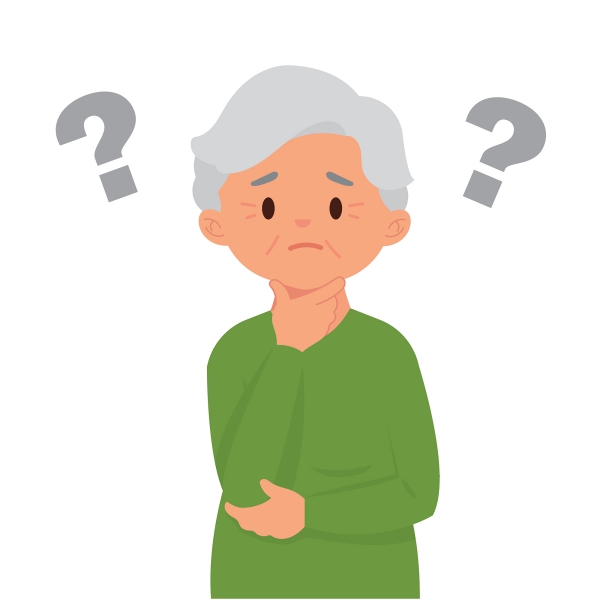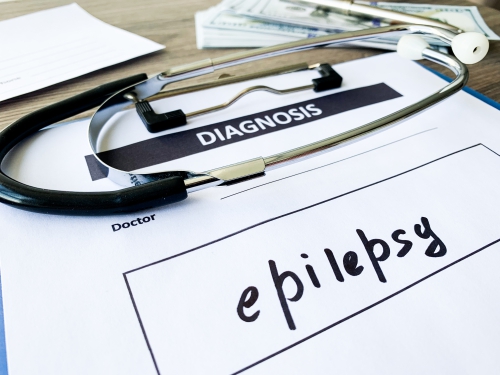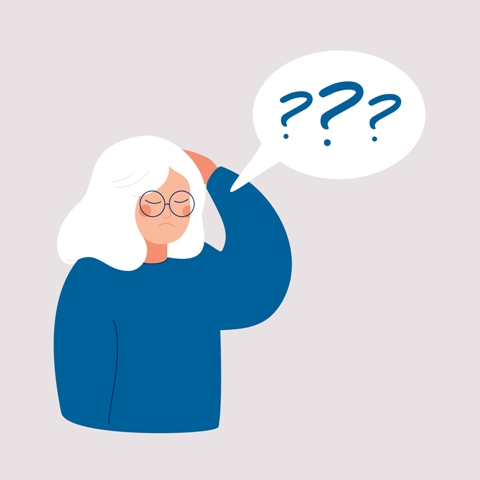Dementia, Mental health, Alzheimer's disease, Vascular dementia, Lewy body dementia, Memory loss
Description : Dementia is a term used when someone develops memory, thinking, reasoning and judgement
Article Details :
What is dementia?
Dementia is a term used when someone develops memory, thinking, reasoning and judgement difficulties. This term can only be used if the symptoms are severe enough to impair the person’s quality of life. Dementia is not a disease in itself but a group of symptoms caused by various diseases such as Alzheimer’s disease, vascular dementia and Lewy body dementia amongst others. The main symptoms is memory loss. However, having memory loss alone does not mean that you have dementia.
Alzheimer’s disease is the most common cause of dementia, representing 60-80% of all cases of dementia. Age is the most important risk factor for dementia as it is very common in people aged above 80 years. In addition, having a close family member affected by Alzheimer’s disease, increases your risk of developing the disease due to the inheritance of a certain gene called Apolipoprotein E4 (APOE E4).
Most of the causes of dementia are progressive, meaning that the condition gets worse with time. However, there are some cause of dementia which are reversible.
What are the causes of dementia?
Dementia is caused by several conditions including:
- Alzheimer’s disease: Alzheimer’s disease is the most common cause of dementia, accounting for 60-80% of all cases of dementia. The exact way or the reason why it develops is still unknown but scientists have discovered that the inheritance of the APOE E4 is associated with the development of Alzheimer’s disease. In addition, they identifies what changes does this condition do to your brain such as loss of nerve cells, deposition of plaques known as beta-amyloid plaques and disorganised masses of certain protein fibres (tau proteins) and these are known as neurofibrillary tangles.
- Dementia with Lewy bodies: This form of dementia is caused by the development of abnormal protein structures known as Lewy bodies within the brain. This results in signs and symptoms similar to Parkinson’s disease such as stiffness, trembling and inability to walk or move normally. In addition, this condition may cause the person to act out of their dreams during sleep which may lead to injuries and can be scary to their partners. This is known as REM sleep behaviour disorder. Furthermore, this form of dementia may also cause the person having visual hallucinations- seeing things that are not really there.
- Vascular dementia: Vascular dementia occurs when there is reduced blood flow to certain parts of the brain. The reduced blood flow may be due to blood vessels being clogged with fatty deposits or blood clots. This form of dementia is especially common in people who have suffered from a stroke, have diabetes or high blood pressure. The most common symptoms include having problem-solving difficulties, slowed thinking, inability to organise their tasks and difficulty in concentrating.
- Frontotemporal dementia: This form of dementia is caused by degeneration of nerve cells in the brain. These changes occurs mainly in the frontal and temporal lobes of the brain. This condition usually occurs at an early age than Alzheimer’s disease. There are several types of frontotemporal dementia- one affects the person’s ability to understand speech and language, and another type affects the person’s personality resulting in inappropriate social behaviours.
- Mixed dementia: People above the age of 80 years can suffer from more than one cause of dementia at the same time such having both Alzheimer’s disease and vascular dementia.
- Traumatic brain injury: Repetitive trauma to the head may result in dementia. This is more common in football players, boxers and soldiers. Often, the symptoms may appear years after the trauma.
There are certain conditions which cause dementia-like symptoms that can be reversed with treatment and these include:
- Infections: Having a very high fever from an infection may result in signs and symptoms resembling dementia.
- Endocrine and metabolic problems: Having a low blood sugar, thyroid problems or insufficient amount of vitamin B12 can result in dementia-like symptoms.
- Side effects of certain medications
- Brain tumours
- Lead poisoning
- Hypoxia: This is when your brain is not getting enough oxygen which may be due to heart attacks, asthma or carbon monoxide poisoning.
What are the signs and symptoms of dementia?
The signs and symptoms of dementia includes:
- Memory loss
- Problem-solving difficulties
- Difficulty in finding words when communicating
- Inability to organise or plan their work
- Visual difficulties
- Confusion
- Inability to concentrate
- Getting lost in familiar places
- Visual hallucinations
- Needing help with basic daily tasks such as bathing, eating and dressing.
- Sleep problems
- Depression
- Anxiety
- Personality changes
- Inappropriate social behaviours
- Agitation














